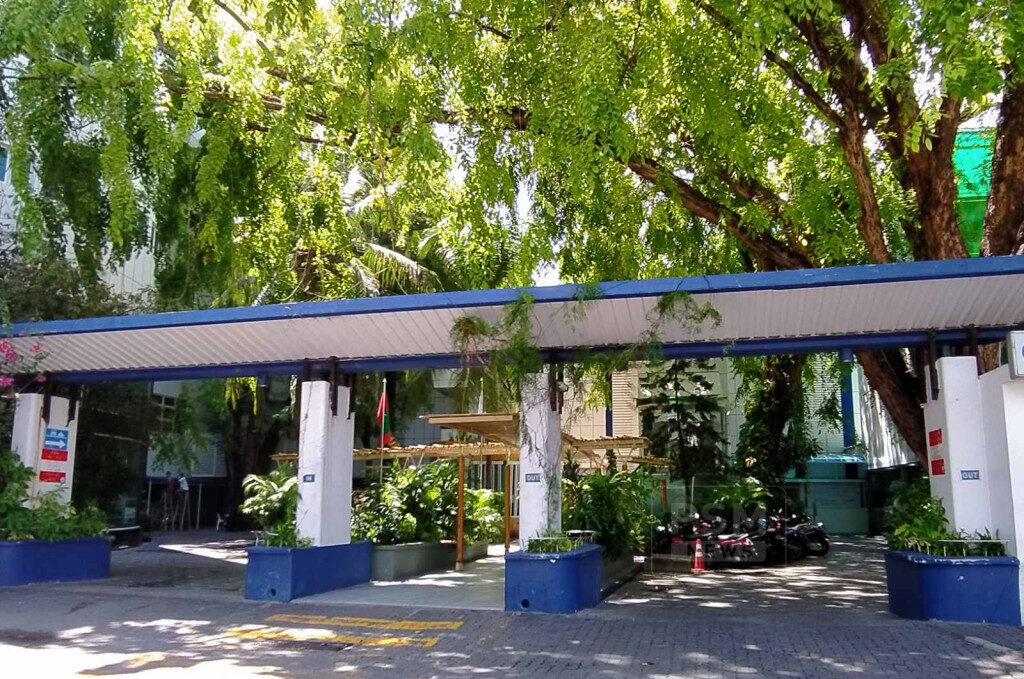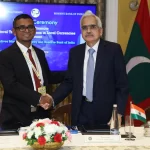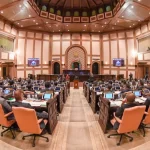Malé, Maldives — In yesterday’s presentation to the Majlis finance committee, Ahmed Nashid, Managing Director of ADK Hospital, outlined the pressing financial challenges facing the institution, emphasizing the need for equitable funding to sustain high-quality healthcare services. This presentation was made following ADK’s request last year to meet with the finance committee, a request that was initially brought forward when Mohamed Nasheed was the Speaker but was only attended to in the current Majlis session. Nashid highlighted that the government currently owes ADK a significant MVR 240 million in unpaid bills, which is putting the hospital’s operations at risk.
Nashid expressed concerns over the current financial strain, noting that the Ministry of Finance has been releasing only MVR 25 to 30 million monthly, a sum insufficient to meet ADK’s daily operational costs of MVR 1.5 million, which total MVR 45 million per month. “We are under severe financial stress,” Nashid stated, adding that the hospital is struggling to manage its MVR 150 million in overdrafts and other loans, which come with an interest payment of approximately MVR 17 million.
The situation is further complicated by challenges in maintaining adequate stocks of life-saving medications. Nashid warned that ADK Pharma, the hospital’s pharmaceutical arm, may soon be unable to restock essential medicines if the outstanding bills remain unpaid. He stressed that any operational cuts could undermine the significant progress ADK has made in recent years.
During the discussion, Ahmed Affal, Managing Director ADK Hospital emphasized the importance of supporting local private healthcare providers. He argued that capable local facilities, such as ADK, are essential for providing timely life-saving treatments and reducing the need to send patients abroad for care, which places additional strain on the national budget.
Nashid also raised the issue of acquiring foreign currency, a challenge exacerbated by the current financial crunch. He explained that while ADK has historically exchanged local currency with resorts to obtain the necessary foreign currency, this method is becoming increasingly unsustainable.
The impact of delayed payments is also being felt by local pharmacy owners, who rely on ADK for their medicine supply. Nashid pointed out that these pharmacies collectively owe ADK MVR 60 million but are unable to pay due to delays in payments from Aasandha, the national health insurance provider.
Nashid proposed a payment plan to the Ministry of Finance, suggesting that MVR 50 million be paid monthly for the first three months, followed by MVR 48 million per month. He cautioned that without this plan, the government’s debt to ADK could reach MVR 400 million by next year.
Additionally, Nashid recommended that Aasandha revert to its pre-pandemic prescription policy of limiting supplies to 30 days, rather than the current three-month supply, which has led to prescriptions being billed as high as MVR 4,000.
For the first time, Nashid addressed the issue of rent for the land ADK occupies. He noted that ADK pays an annual rent of MVR 8.2 million for its prime location, compared to the tourism sector, where resorts pay USD 8 per square meter annually, while ADK pays USD 92 per square meter. Nashid also highlighted ADK’s contribution to the state, including nearly MVR 80 million in taxes, with MVR 5 million in GST and MVR 24 million in income tax.
Despite these financial strains, Nashid remained optimistic that with the government’s support, ADK could continue to provide essential healthcare services to the community.












